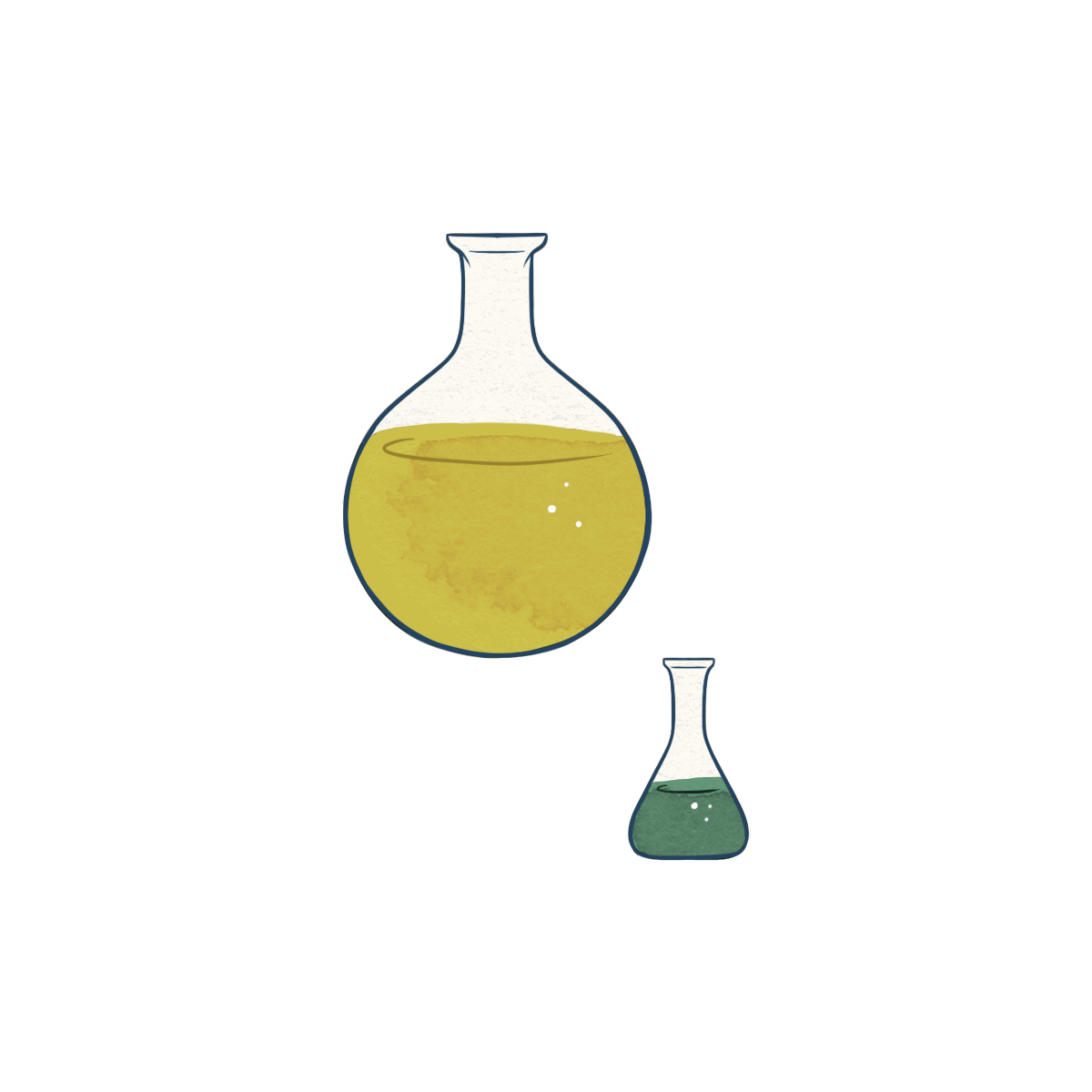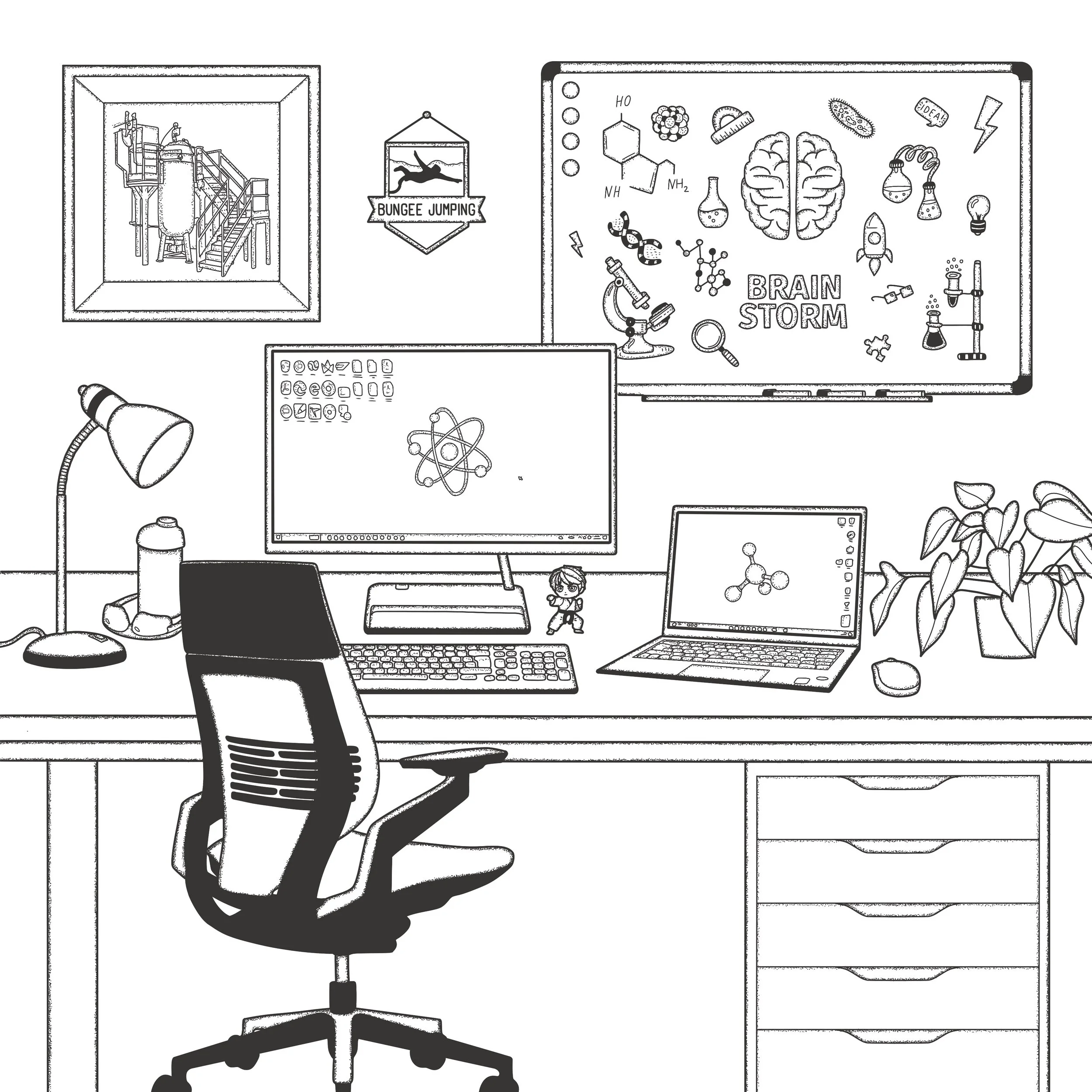
Section Styles spotlight-header
I am a
CHEMICAL ENGINEER
Aleke Kuoh
Presented by The Amgen FoundationDeveloping medicines often requires producing large amounts of specific cells.
As a Chemical Engineer, I develop processes that make it easier and more sustainable to produce large amounts of cells.
MY WORK SETTING
Indoor vs. Outdoor
I spend all of my time working inside at a desk or in the lab.
People vs. Alone
I spend some time collaborating with others and some time alone working on processes.
Creative vs. Defined
My work can be creative when using new technology or equipment, but then there are a lot of defined protocols to follow.
-
I am a chemical engineer at a biotechnology company that works on developing new medicines. My job is to improve the way that we produce large amounts of cells that can be used in all sorts of different ways by researchers and in clinical trials. We don't make the materials that they use, our focus is on getting the process itself just right so that others can use what we learned. Essentially, our goal is to make it faster, easier, and less wasteful to produce the cells our company needs.
-
I develop cell cultures, which are a way of growing cells in a controlled environment like a lab. We use large tanks (which we call bioreactors) to help these cell cultures grow and replicate in large quantities. A lot of different factors can impact how well the cells grow, like pH, temperature, oxygen, etc., so a big part of my job is making sure we get the conditions right. A lot of this work is trial-and-error. We see what the outcome is with one batch and make small tweaks to the conditions to see what changes.
-
Many different scientists at our company (and beyond) require a lot of cells in order to run their experiments or develop medications. If everyone tried to figure out how to make those cells on their own, it would be very wasteful and inefficient, and the quality would suffer. That's why jobs like mine exist. We're working on perfecting the process and experimenting with different conditions, so that everyone else has the perfect cell-making recipe. In the big picture, this helps our company be more efficient and sustainable, so that it takes less time for us to make major impacts on human health.
My Work NeedsEssential Skills:
PATIENCE
A single experiment could take six weeks, and it may not even work. This job is exciting, but you also have to go with the flow.
COMMUNICATION
I work with many different scientists and engineers to solve problems, therefore being able to clearly communicate your research with the teams is important.
FOCUS
Cell culture is very precise and every step is important, so there’s a lot at stake—you have to be on top of your game every day, every minute.
COLLABORATION
Science is done best in a collaborative environment with a variety of people with different strengths and ideas.
DAYS IN THE LIFE
Days in the Life
Come along and explore what three days at my job might look like!
How I Work
Check out what my place of work looks like on an average day.
This is what my workspace looks like!
Computer & Desktop. Aside from the lab, this is where the bulk of my work is occurring as I look at data from experiments and communicate with the team.
Whiteboard. I love to brainstorm things on my whiteboard.
Safety Glasses. These are a safety necessity for when I’m working in the lab.
Bioreactors. I work with Bioreactors, which you can see in the image on the left. Those are where I do all of my experiments to mass-produce cell culture fluids.
Demon Slayer. This little action figure is from a Japanese anime series about man-eating demons roaming the earth that the character hunts and slays. I love bringing a little personality to my space.

Did you know...Modern chemistry labs are filled with some really cool (and often really big) equipment.
Chemistry isn’t just about petri dishes and beakers anymore—it's a field brimming with high-tech gadgets and cutting-edge machinery! Walking into a modern chemistry lab, you might see massive bioreactors, sleek chromatography systems, and robotic arms handling delicate experiments with precision. These advanced tools are transforming how scientists conduct research, allowing them to explore new frontiers at an astonishing pace. For example, bioreactors are essential in biotechnology for growing cells and producing everything from vaccines to biofuels on a large scale. The technology in these labs is constantly evolving, making it an exciting and dynamic field to be a part of. Imagine being part of a team that creates a new piece of lab equipment that makes it possible to discover a life-saving drug or a sustainable energy source!
Throughout history, the tools available to scientists and engineers have often set the limits on what they could achieve. That’s why every new piece of equipment or innovation opens up a whole new world of possibilities. There are entire careers in technology, physics, engineering, and chemistry dedicated just to creating this equipment so that other researchers can use it. These professionals, often working in multidisciplinary teams, combine their expertise to push the boundaries of what's possible. However, with such advanced and expensive machines, there are also whole careers dedicated to just knowing how to operate and fix them! For instance, experts in mass spectrometry—a powerful tool for analyzing chemical compounds—must understand both the intricate mechanics of the machine and the chemistry behind the samples they test.
Sometimes it’s the scientists running experiments that get all the attention, but there are just as important roles behind the scenes that make the tools scientists need to succeed.
Rewarding
These are the parts of my job I find particularly rewarding.
Having a lot of responsibility that requires you to step up to the plate and be ready to solve problems with huge impact.
Getting to be on the forefront of new technologies and needing to be willing to try out innovative processes.
But everyone is different! Drag the circles to place them where you rate them.
Challenging
These are the parts of my job I find particularly challenging.
Working a very dynamic job where you need to juggle multiple things at once.
Managing pressure from team members relying on your work being done correctly and your results being accurate.
Section Styles movable
These are the people I work with:
Other Scientists
Many individuals in our company are responsible for running clinical trials, and they also ensure the health and viability of the cells we work with.
Equipment Experts
These team members oversee the equipment we use for our experiments. We collaborate closely with them whenever issues arise.
Team Members
Our team currently consists of 15 Chemical Engineers. We all work on data and operations but have specific assigned roles based on our titles.
WHAT’S NEXT?
What’s next for my field of work?One of the most exciting things about working in STEM is how fast things change. things that aren't possible today could be possible tomorrow.
More sustainable processes are on the rise in biotechnology.
There are a lot of moving parts in biotechnology and drug development, and many of those parts produce waste, require a lot of energy, or have other negative impacts on the environment. Many researchers are committed to replacing everything from our equipment to the fluids we use in our experiments with more eco-friendly options, so the future of biotechnology could look a lot greener. And even innovations like AI that help automate and streamline our processes could help cut back on the waste!
Looking for teacher resources?
PHOTOGRAPHER: Tandem Photo • Illustrator: Stephanie Singleton© 2024 THE PLENARY, CO. ALL RIGHTS RESERVED. TERMS. PRIVACY.This is a brand new site! See an issue? Let us know.



















